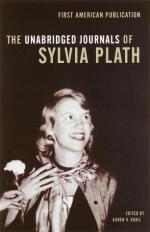|
This section contains 2,641 words (approx. 9 pages at 300 words per page) |

|
SOURCE: Schultz, Jerrianne. “Perfection and Reproduction: Mutually Exclusive Expectations for Women in Sylvia Plath's ‘Edge.’” English Language Notes 37, no. 2 (December, 1999): 68-75.
In the following essay, Schultz finds allusions to mythological images of motherhood and womanhood in “Edge.”
As the last poem Sylvia Plath ever wrote, “Edge” is tempting to read as her final decision to commit suicide, especially with lines like, “We have come so far, it is over.”1 But a close analysis reveals that the poem contains subtle, carefully constructed prosodic effects. Such poetic finesse would be difficult to affect from a stupor of suicidal emotion. Rather, the touches rendered to this poem encourage an intellectual, rather than purely emotional response. Such an intellectual approach to “Edge” reveals that this is a poem about contradictory expectations, about how two contrasting emotions can occupy the same space at the same time, how two contradictory drives can be pulling...
|
This section contains 2,641 words (approx. 9 pages at 300 words per page) |

|


